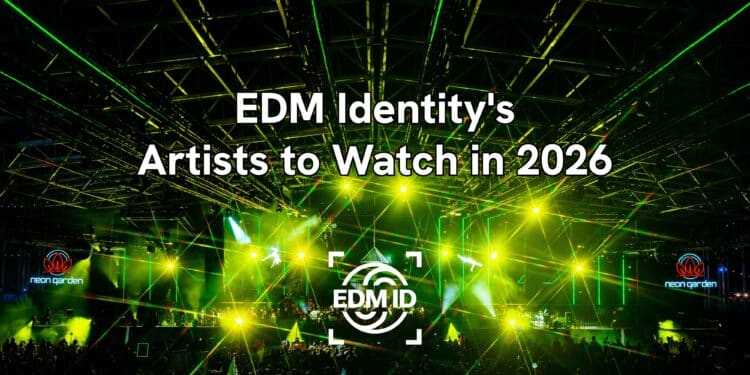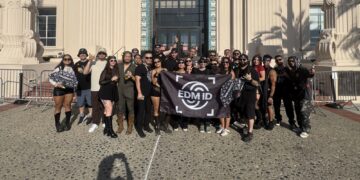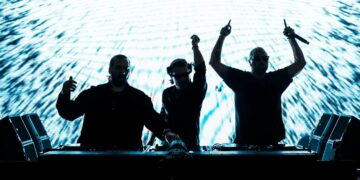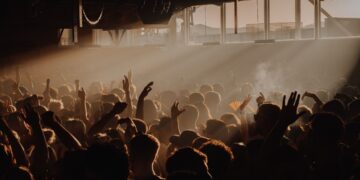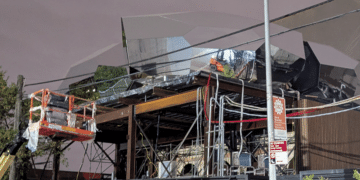After spending last year feeling disconnected from the scene, Jayce is back with some advice to give to anyone else burning out.
For me, burning out began after I graduated from college. After three and a half years of attending Indiana University, I graduated a semester early with a bachelor’s in journalism and minors in international studies and arts management. I was going to be somebody.
I dedicated the past decade of my life to electronic music, more so in the past few years. I researched new artists and familiarized myself with labels. I could tell you at least five new songs dropping each week and which upcoming festival lineups were going to blow you away. I was invested. There was no stopping me. There wasn’t an end in sight because this was everything I had imagined my life to be in my dreams: fast-paced and fully immersed in the music I love.
But following graduation, things didn’t turn out as I had planned.
With no actual plan beyond graduating from school as fast as possible, I picked up a serving job to pay my bills and finish out my lease. Turns out that serving – and serving a lot, which is what I did – could be somewhat lucrative. Finally, I was able to afford to do more on my own dime, which meant way more shows and festivals than I could’ve dreamed of doing in a single year.
Several months beyond graduation, I had plans of moving out of my current city once my lease was up, but I wasn’t able to due to some interpersonal and financial reasons. I felt trapped, unmotivated, stressed, and so much more. I ended up moving in with my boyfriend, getting a dog, and continuing my same old routine of going to work, going to sleep, waking up, and doing it all over again.
The thing about routines is that they start to feel boring when there isn’t much to them.
Though I’ve always aimed for consistency, I also love a spontaneous change of pace. It’s one of the many qualities that has drawn me to this industry. Having a schedule is nice and important, but so is letting life do its thing.
When I was in school, I had a schedule. I had a written planner where I would jot down meetings and assignments and I would designate time to study, work on a project or write an article. After school, I lost the need to organize all the craziness because… there wasn’t any anymore.
With nothing to do except work, there was no end or beginning to any of my days, so it was easy to lose track of time. Days turned into weeks of this endless record loop, and things fell out of my routine. Some were small, like making sure to do my dishes as I made them and not let them sit for days at a time. Others were forgetting to write or even having the motivation to do so, no longer squaring away time for socializing or working out, and sometimes I forgot to even breathe.
My mental health has been on quite the roller coaster ride since graduating. It was like my brain purged itself of all of my healthy coping mechanisms once I got my degree. Over the course of the past year, I’ve had moments where I’ve felt so bad I felt physically ill, and I didn’t know how to pull myself out of them anymore.
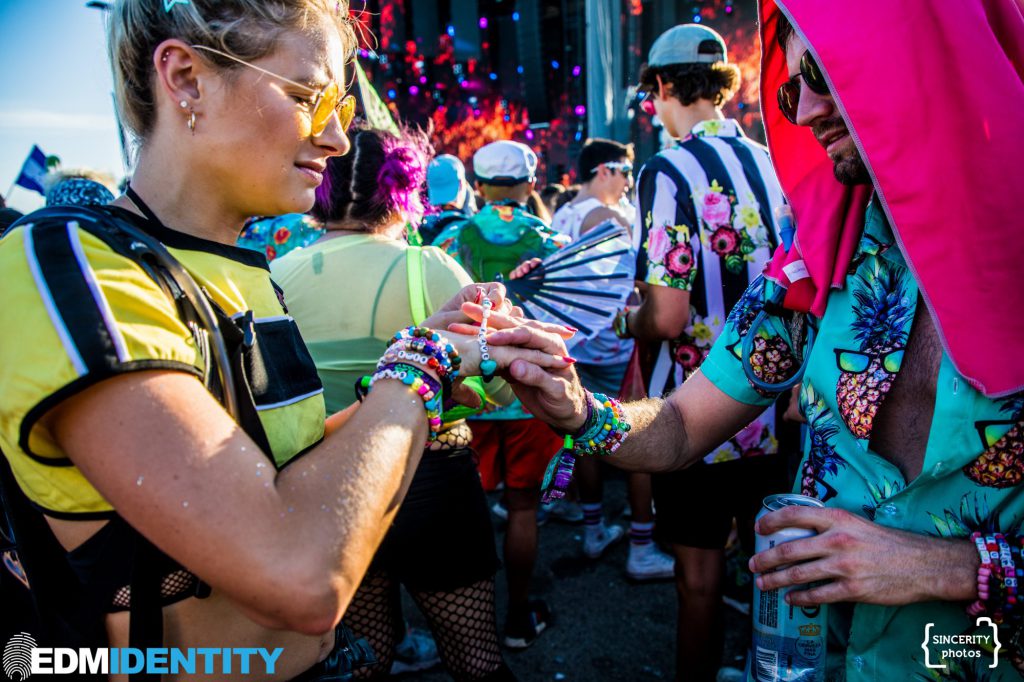
I took a small break in October and went the entire month sober.
I didn’t go to any shows besides one that I had been looking forward to for a while and I attended that completely sober. I took the time to reflect on what this music scene means to me. During that time, I considered that it may not always be in my best interest to be so directly involved with the scene.
By direct involvement, I mean physically attending shows and festivals and constantly immersing myself in the community. With Indianapolis’ music scene popping off harder than ever, that meant I was going to shows every week, sometimes multiple times a week. And when I wasn’t at a show, I was engaging with the community online. I regularly interacted with “EDM Twitter,” and that alone can be very draining and problematic (as social media typically is).
Since that break, I’ve exponentially slowed my pace and have been more choosy with the shows I attend while also withdrawing from online engagement.
It’s scary when you start to get burned out on the thing you’re most passionate about.
Writing and music are two things that have shaped who I am as a person and when I started to fall out of love with both of them I withdrew myself even further. I had no idea how to jump back into either, so I didn’t. I spent months feeling like I was completely disconnected from everything that had given my life purpose and every attempt I made to get back into my groove seemed to fall short.
Everyone’s path to getting back into the scene is different because we all face different obstacles and different reasons for wanting to leave in the first place. For me, the first step to re-involving myself in the EDM community in the healthiest and most positive way possible was recognizing a few red flags.
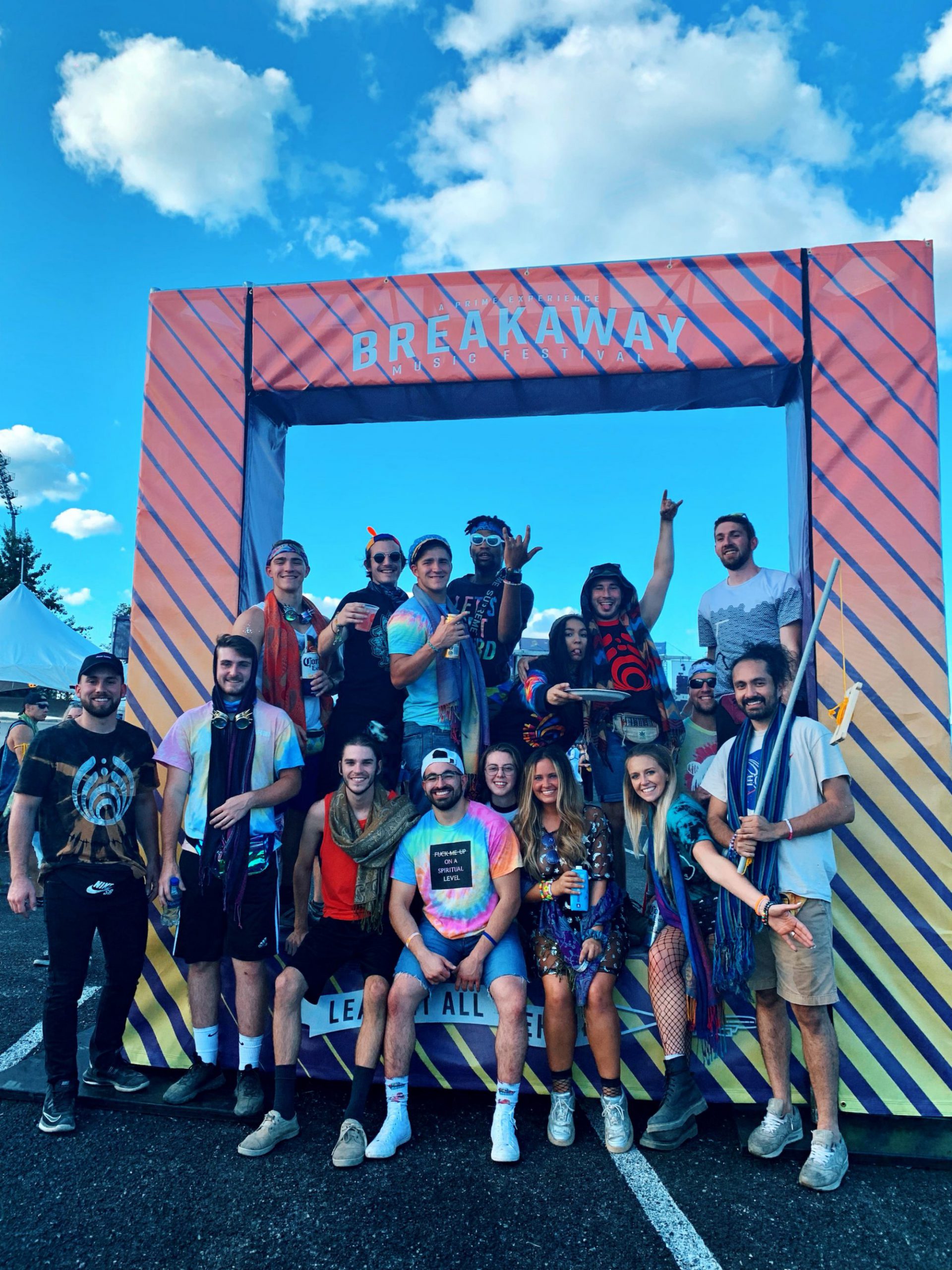
I started to realize something was wrong when I viewed attending events as more of a chore instead of a beloved pastime.
I live a little over an hour away from Indianapolis, and though a couple of shows will hit my city every once in a while, most of the action is in the state capital. Factoring in getting ready and driving, preparing for a show is a multiple-hour-long ordeal. I began getting less excited when getting ready for events, and there were several moments where I wanted to sell my ticket and stay at home.
Luckily for me, I have a wonderfully large and supportive rave fam in Indianapolis who I attend shows and festivals with. Though they would understand if I passed on a show, there was still an internal pressure forcing me to tough it out and attend. FOMO aside, I had convinced myself that my attendance was expected and I didn’t want to let anyone down.
The second warning sign I recognized was that I couldn’t bring myself to avidly listen to EDM in my spare time.
Prior to graduation, I was known to constantly be listening to music. I wouldn’t go anywhere without my headphones and if I wasn’t working or hanging out with anyone, I was listening to music at top volume. Spanning from my favorite classic dubstep mixes to new releases, I spent most of my days getting lost in EDM. It wasn’t that I didn’t enjoy other genres, but I was extremely passionate about electronic music in particular.
Then something changed. New releases no longer had my attention, and my favorite tunes became muddled together in a sea of music that all sounded the same to me. There was no longer that spark in my chest, that feeling of utter excitement and wonder as I listened to electronic music.
I became almost annoyed by the scene’s constant, unrelenting presence in my life.
While some of my friends started excitedly getting into the scene, I was falling out of love with it. I became increasingly aggravated with the EDM community online – in fact, I resented it.
I want to go on the record and say that the online EDM community is nothing like the one in real life. While there is an overwhelmingly positive and accepting majority, there is a part of the online community that can be spiteful, self-absorbed, and obsessed with projecting a holier-than-thou narrative. The internet, especially in niche music communities, can be a great place to get connected with likeminded individuals. But it can also be mentally draining and even damaging.
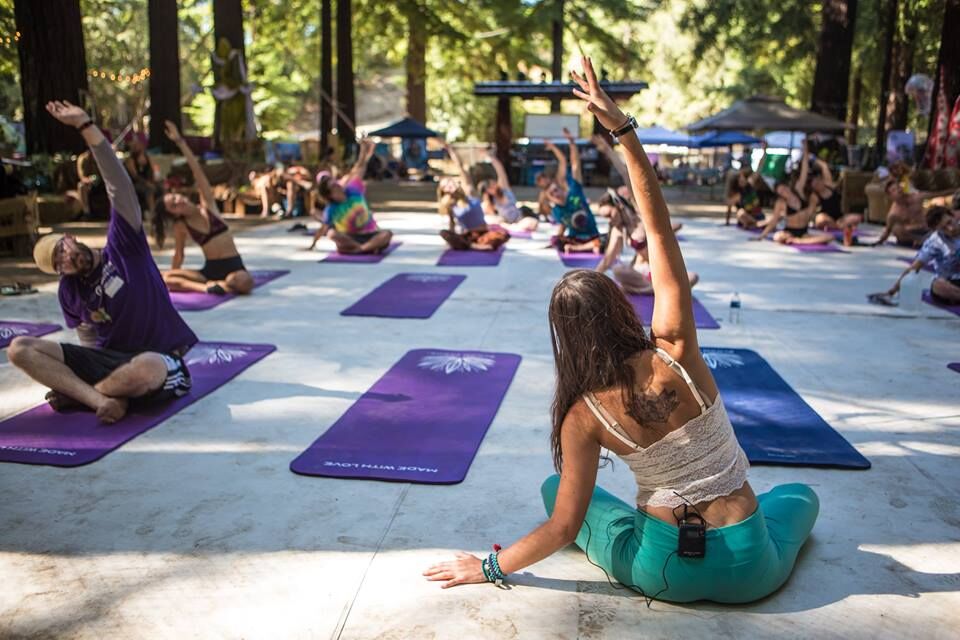
After identifying the elements that were pushing me away from dance music as a whole, I took the time to figure out how to take a healthy, temporary break for myself.
Despite all these negative feelings regarding electronic music, I still felt a tie to it stronger than anything I had ever felt before. I wanted to fall in love with it all over again, but I struggled to figure out how. My path to a healthier re-involvement was up and down, with moments where I felt so fully immersed in the scene and others where I felt like I was back on the outskirts. As time went by, I gave myself the mental space I needed. I told myself that it was okay to not be okay, so I finally took a break.
I followed a couple of different steps to ensure I was giving myself the care and attention I needed. The five that I identified were stepping away from social media, exploring genres other than my favorites, finding hobbies outside of dance music, being more selective with events I attended, and, from a career standpoint, getting involved in other aspects of the industry to spice up my routine.
For me, limiting my presence within the online EDM community was extremely pertinent to my well-being.
I can’t remember when it started or how it happened, but somehow, I managed to gain a Twitter following. I felt obsessed with the platform I had built – though it wasn’t the biggest, I felt like my posts were really penetrating the community and realized my online persona was carrying into my real life. It was something that simultaneously excited me and scared me – I portrayed myself as someone online that I didn’t feel was completely like my true self.
I have always been extremely opinionated and upfront with my opinions, and that has led to me receiving positive and negative feedback online. It took a while for some of the more negative engagements to get under my skin and affect my mental health, but when it did, it was devastating. In an era of cancel culture, it was easy for an entire community to seemingly turn against me and encourage their peers to do the same.
Realizing that Twitter was becoming a toxic environment for me, I decided to take a break from it and break my addiction.
I deactivated my account for a couple of weeks before finally returning when I felt I was no longer critically attached to the platform. Then, I finally decided that I would need to tailor my engagement to curate a better online experience for myself.
To this day, I practice using my platform for more positive purposes and not involving myself in every conversation. I’ve also revisited the accounts I follow to create a timeline mirroring my new approach to my online activity. The result is a space where I can stay updated on the music community, have positive and meaningful discourse with my peers, and connect with others.
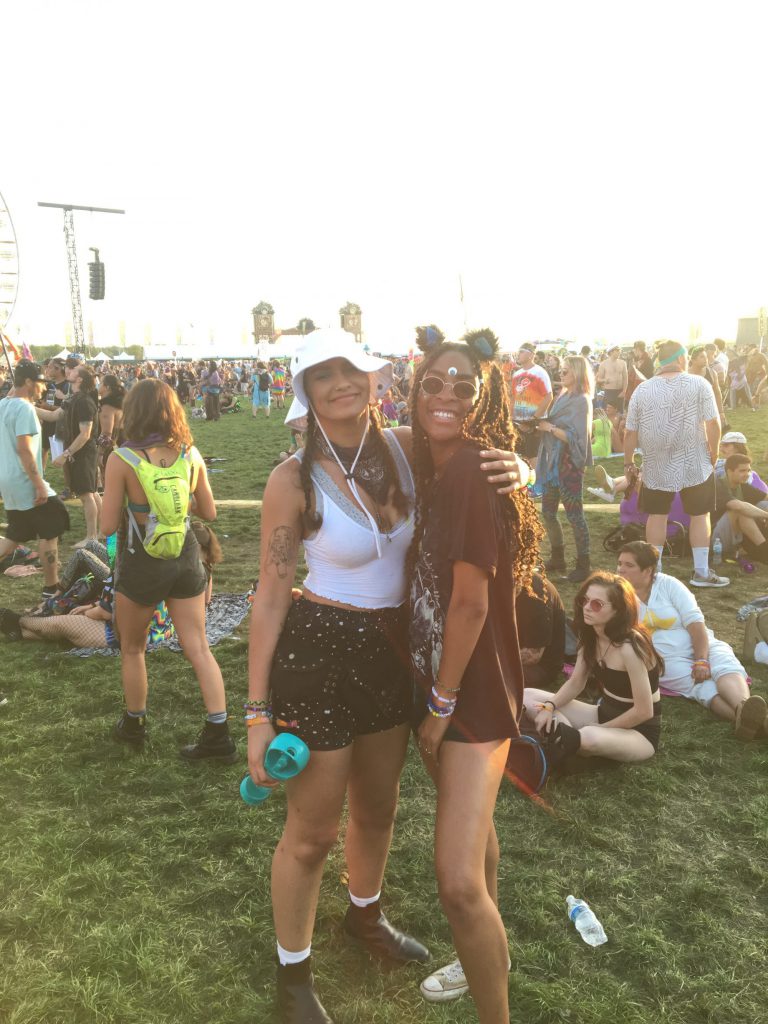
When it came to listening to music in my free time, I delved into other genres to spice up my playlists and create a more diverse listening experience.
Whereas in the past, I was almost exclusively listening to heavy dubstep and experimental bass, I began integrating music from genres I wasn’t as familiar with. In the dance music realm, I started throwing house music and DnB into my rotation, but I also explored outside of electronic music.
I made an entirely new playlist on Spotify and threw in everything from Terror Reid to Glass Animals and completely revamped my music taste. Doing this made it so that I no longer felt like I was listening to the same music over and over again, and I slowly but surely began to immerse myself in the wide world of bass music again.
Though EDM is important to me, I began to discover other outlets to put my energy into.
There was a time when all I cared about was dance music. Other hobbies went to the wayside until all I did was eat, sleep, and breathe electronic music. Once I realized I was becoming out of touch with the music I was so obsessed with, I searched for other interests.
I put a lot of energy into work, socializing outside of the EDM scene, and even small things like vacations with my boyfriend or taking our dog on walks. I also became more involved in arts and crafts, which eventually translated into my social media where I followed many artists of different mediums. I felt like I had unlocked another world entirely separate from EDM, and it felt great to be so deeply interested in something else.
Of course, I still attend events, but I no longer feel the burning desire to put aside my entire life to make each one.
Part of diversifying my music repertoire meant that my tastes were changing more than ever, and after spending a year attending shows weekly, I realized the fatigue I felt wasn’t only physical – I was getting tired of the expectation to go to every event. Being more selective with the shows and festivals has once again made me more excited about the ones I choose to go to.
Additionally, it is also incredibly satisfying to be able to miss out on an event and not suffer from FOMO each and every time. And it has made it even easier for me to be able to recognize that other needs of mine come before these momentary experiences.
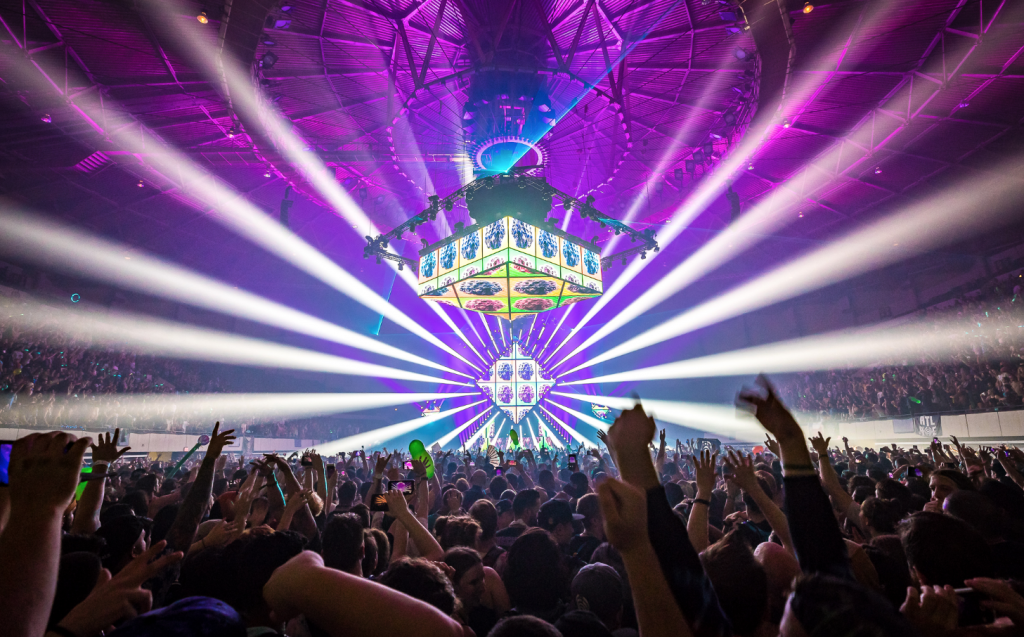
Finally, I realized a lot of my burnout was attributed to only contributing to the scene recreationally rather than kick-starting my career in the industry as I had wanted.
Actively making this music my career is something that I’ve wanted to do since graduation, but couldn’t find the time nor the motivation to do between constantly working and attending events. It wasn’t until a month ago that I decided to sit down and take the time to apply for positions at venues and build my professional portfolio.
I realized that I was feeling purposeless, continually being part of the crowd instead of working behind the scenes as I’ve always wanted to do. Though it was a long process, I eventually heard back from one of the venues I applied to and got the position. For the first time in a long time, I felt proud of myself for finally taking steps toward my end goal.
It’s perfectly normal and natural to feel exhausted in this scene, but that feeling doesn’t have to be permanent.
If there’s anything that I’ve learned, it’s the importance of taking breaks for yourself. I wanted to take the time to share my personal story because I want anyone reading this – teammates, close friends, and random individuals alike – to understand that you truly are not alone.
Of course, everyone’s experiences with burning out are different, so not everyone can subscribe to the same action plan.
That being said, I wanted to identify the red flags I noticed in my own life that signified I was burning out and what I did to effectively take a break and give myself the space I needed. I hope they can offer a little insight and establish a space for empathy and understanding. Though we come from all walks of life and have a plethora of different interests and subcategories within the dance music community, we are a family.



